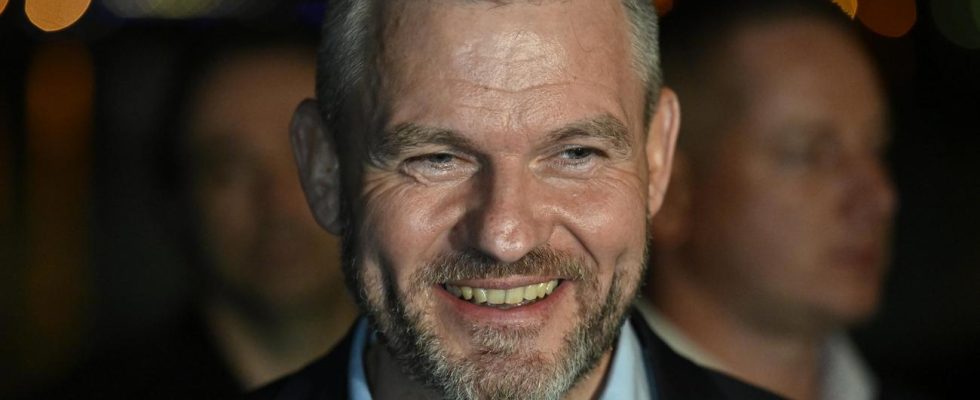The parliamentary speaker Peter Pellegrini, who is close to the government, won the presidential election in the Slovakia won. After 99.8 percent of the electoral districts were counted, according to the electoral commission, the Social Democrat was clearly ahead of the liberal candidate Ivan Korčok, who got just under 47 percent, with a good 53 percent of the votes. The official final result should be available by Sunday afternoon at the latest.
Korčok admitted his defeat to journalists in Bratislava and congratulated Pellegrini on his victory. The TASR news agency quoted the former Slovak foreign minister as saying that he was “disappointed and disillusioned”. In the first round of voting, Korčok was still ahead. The first partial results of the runoff election also suggested a narrower result.
The previous parliamentary speaker Pellegrini is a confidant of the Russia-friendly head of government Robert Fico. This should see itself strengthened by the victory of its candidate. Fico is being criticized for a planned restructuring of the public broadcasting system and a planned relaxation of anti-corruption laws. Statements by Fico in which he questioned Ukraine’s sovereignty also caused outrage.
Opposition for Korčok
Pellegrini has recently tried to allay concerns about his election. When he cast his vote, he assured that the election was “not about the future direction of foreign policy.” Slovakia will continue to be a “strong member of the EU and NATO,” he said. With regard to arms deliveries to Ukraine, he had previously spoken out in favor of restraint – and also referred to the position of Chancellor Olaf Scholz (SPD). Slovakia shares a direct border with Ukraine.
Korčok ran as an independent candidate, but was supported by the opposition parties. During the election campaign, he spoke out in favor of decisive military support for Ukraine and announced that if he were elected, he would act as a counterweight to the left-wing nationalist government under Fico.
Outgoing President Zuzana Čaputová did not run for a second term. In Slovakia, the president has primarily representative tasks. However, he or she can veto laws or challenge them before the Constitutional Court. The presidents also appoint constitutional judges who could become important in the political controversies surrounding Fico’s planned reforms.
The parliamentary speaker Peter Pellegrini, who is close to the government, won the presidential election in the Slovakia won. After 99.8 percent of the electoral districts were counted, according to the electoral commission, the Social Democrat was clearly ahead of the liberal candidate Ivan Korčok, who got just under 47 percent, with a good 53 percent of the votes. The official final result should be available by Sunday afternoon at the latest.
Korčok admitted his defeat to journalists in Bratislava and congratulated Pellegrini on his victory. The TASR news agency quoted the former Slovak foreign minister as saying that he was “disappointed and disillusioned”. In the first round of voting, Korčok was still ahead. The first partial results of the runoff election also suggested a narrower result.

